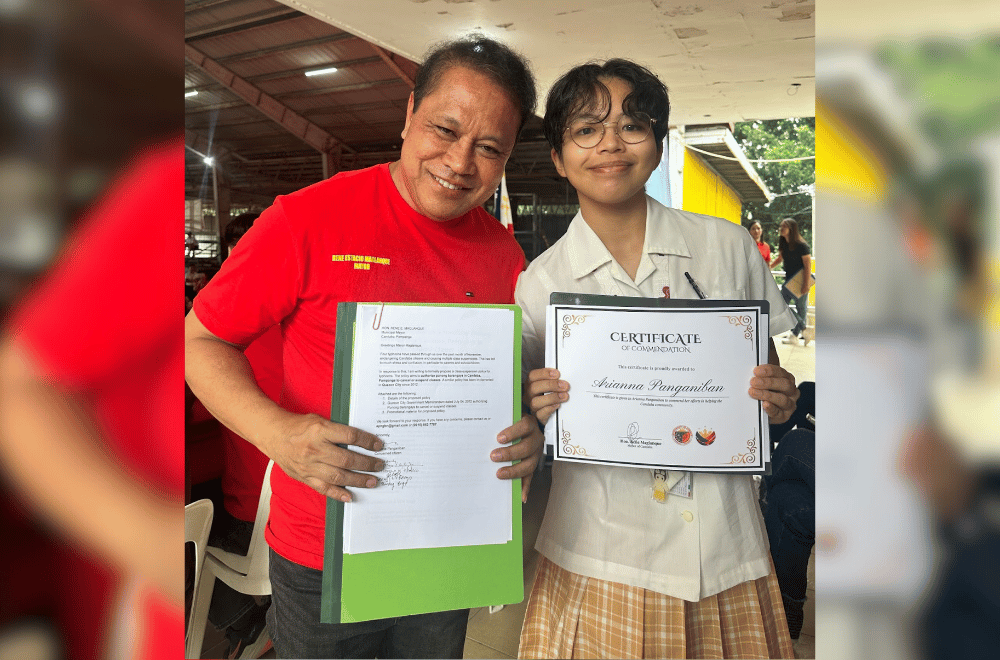Fueled by the fury of recent typhoons and flooding, a determined group of young leaders in Candaba, Pampanga turns their vision for disaster preparedness into a lifeline for their community.
Baha Brigada, a youth-driven initiative headed by 17-year-old Arianna Panganiban, has spearheaded a proposal to allow barangay captains to suspend classes during disasters.
It aims to provide a faster, more localized disaster response system in a town affected regularly by flooding from the Pampanga River.
The grassroots movement, composed of 17 and 18-year-olds, began after Luzon faced four typhoons in just two weeks in November 2024.
"We were inspired by the recent November typhoons," Panganiban said.
Candaba, known as the lowest point in the region, experienced severe flooding, exposing the inefficiencies in class suspension announcements.
"With that came multiple class suspensions, often announced on a day-to-day basis," Panganiban added.
Some students reportedly stayed up late waiting for announcements the night before, while others were left stranded at school the next day.
The proposed policy, modeled after Quezon City’s existing framework since 2012, has gained support from Buas Barangay Captain Dean Pelayo and Candaba’s parish priest, Father Teodulo Franco.
The policy proposal was introduced to the public during a Sunday Mass on November 24, and submitted to Mayor Rene Maglanque on December 10, along with a Candaba-specific flood risk map.
The group earned commendation for their active citizenship.
The map was created using Geographic Information Systems (GIS). It shows flood-prone areas based on slope, elevation, and proximity to the Pampanga River.
A LOCAL SOLUTION FOR A LOCAL PROBLEM
If approved, the policy would allow barangay captains to act swiftly.
This would eliminate delays caused by municipality-wide announcements, and reducing disruptions for unaffected areas while protecting students in high-risk zones.
"Barangay captains have firsthand knowledge of local conditions, like when streets flood or when schools near rivers become inaccessible. This would reduce disruptions for unaffected areas and help those truly impacted," Panganiban said.
INSPIRING ACTION AMONG THE YOUTH
The initiative faced challenges due to limited barangay-level data, but the team used publicly available resources and teacher guidance to complete the map.
"It was also challenging to meet with local leaders given their busy schedules," Panganiban said.
"We overcame this by making the policy look actionable and easy to implement, requiring minimal funding. Consistent follow-ups also helped bring the proposal to their attention," she added.
Panganiban encouraged other young people to follow their lead.
"As the next generation, we have to take an active part in shaping our community," Panganiban said.
"We have a unique perspective, and it’s our job to speak out and create meaningful change, no matter how small," she added.
As the policy awaits approval, Baha Brigada remains hopeful that their efforts will inspire similar initiatives across the country, proving that the youth can lead impactful change, one community at a time.



